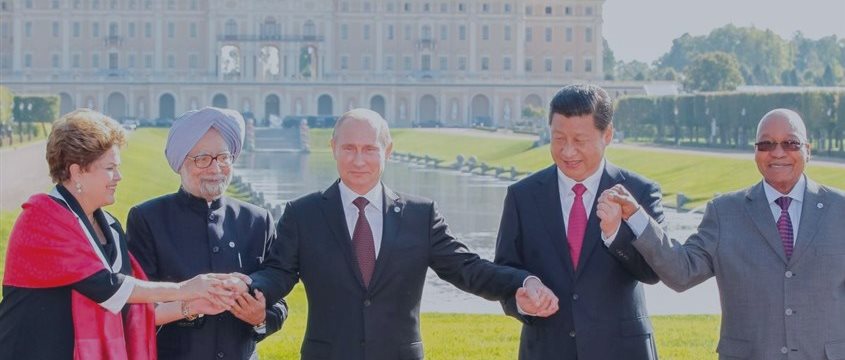What are the basic differences between the G7 and their rival group BRICS? Why does the "club of the mature" hardly need to include China? Deutsche Welle's columnist Frank Sieren reflects upon these questions shedding light on what role Russia played in underlining the differences.
Although the G7 are much like pensioners, they are not in a hurry to actually retire. Feeling too important for that, and having dictated the rules the world played by for too long, they are reluctant to admit that new players like China and India gain more business and economic importance.
The old folks do not want to accept that they have become just one of many international platforms existing in the world.
The G7 represent the interests of mature industrialized countries - they worry about slow growth, large debt and aging populations. The main thing which concerns them, however, is how to maintain their declining power.
Thinking on what would happen if the mature included China in their club, Mr Sieren thought that it would be a mistake at this point, as it would make the G7 even more sluggish than it already is. China would be the 'odd man out' among them.
Instead,
the G7 should become an alternative to the BRICS states of the economies in transition: Brazil, Russia, India, China and South Africa, says analyst, noting that bearing that in mind it becomes obvious why Russia was excluded from the G8.
The up-and-coming BRICS states are more suitable for Russia than the old G7. Entirely different issues are in the center of the BRICS's attention. They are concerned about how to achieve stable growth, integrate into the global economy and create sustainable economic growth.
When the West imposed sanctions on Russia following its annexation of Crimea, BRICS refrained from them supporting Vladimir Putin instead by boosting economic cooperation and therefore highlighting the main difference between the two clubs.
From now on, the two groups better agree on common goals as soon as possible so that to make G20 meetings effective.
Analyst also suggests to create a small and more mobile club of the G3 - the U.S., EU and China - apart from the mature ones (G7), the wild ones (BRICS) and the important ones (G20)
"Where time is of the essence, the G3 could meet; where it isn't, the G20 could gather."
The Elmau summit proves that the old guard doesn't want to
accept the new times but wants to hold on to its previous claim to
power, Mr Sieren says.



